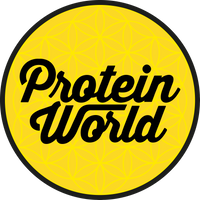
New mum nutrition - What should you be doing as a new mum for diet and exercise?
Early motherhood can be a rollercoaster of changes both physical and emotional. Your beautiful bundle of joy has made their debut and although they may be taking centre stage in your life, it’s also very important to look after YOUR health during this time. Here you’ll find postnatal nutrition and exercise advice to help you start motherhood the healthy way.
Nutrition
Don't jump straight on the weight loss bandwagon
• Although you may lose a significant amount of weight in the first few weeks after childbirth due to the loss of fluids avoid putting pressure on yourself to bounce back to your “pre-baby” weight. This is a time to nurture yourself and your child to keep you milk in ample supply so now isn’t the time for calorie restriction as this may reduce your intake of vital vitamins and minerals.
Eat nutrient dense food
• Lactation can cause micronutrient losses so it’s important to make sure you’re keeping your stores of calcium, iron and B vitamins high to name a few. You are also going through a significant recovery process and need to restore your energy levels. This can be done by eating a balanced meal containing 30% lean proteins, 20% complex carbohydrates, 10% healthy fat and 40% vegetables. Taking one of our multivitamins can help keep deficiencies at bay.
Stay hydrated
• Breast feeding can cause significant fluid losses so aim to be drinking at least 3 litres of water every day to avoid dehydration.
Drink caffeine in moderation
• Although those late-night feeds may be inducing a yearning for your usual Triple, Venti, Soy, No Foam Latte, too much caffeine can cause your baby to become jittery and restless. Stick to around 2 cups of coffee/tea a day at most but alternatively you can always drink herbal or decaffeinated tea.
Avoid alcohol
• Celebratory cocktails might be in order but until you have stopped breast feeding stick to the mocktails for the time being! This won’t last forever but much like caffeine, alcohol in your blood supply is at the same level in your breastmilk so it’s best to steer clear.


Exercise
0-6 weeks post pregnancy
• Can we just take a second to appreciate that you’ve just spent 9 months growing another human! This is probably ONE of, if not THE most physically demanding things that you have done or will do in your life so you need to take it easy. Stick to pelvic floor exercises at this stage.
6-10 weeks
• At around 6 weeks you will have check up with your GP. It’s at this appointment that you can discuss whether or not it’s appropriate for you to start exercising. Be aware that you may still have some degree of abdominal separation so starting exercise before you have had the “all clear” can cause serious harm so it’s important to slowly re-introduce low-impact exercise such as fast walking and swimming.
Over 10 weeks
• Every human body is different as are their recovery periods so always be sure to consult your GP if you are worried and avoid high-impact exercise such as running and aerobics until at least 20 weeks after giving birth.
Yummy Mummy
For all you New Mums out there remember that yours and your baby’s health is what’s important. Following these key principles will help you embark upon this next journey well equipped with the knowledge of how best to recover and move forward after childbirth, in the strongest way. These can also be found in our Yummy Mummy Plan.

RECOMMENDED PRODUCTS

New mum nutrition - What should you be doing as a new mum for diet and exercise?
Early motherhood can be a rollercoaster of changes both physical and emotional. Your beautiful bundle of joy has made their debut and although they may be taking centre stage in your life, it’s also very important to look after YOUR health during this time. Here you’ll find postnatal nutrition and exercise advice to help you start motherhood the healthy way.
Nutrition
Don't jump straight on the weight loss bandwagon
• Although you may lose a significant amount of weight in the first few weeks after childbirth due to the loss of fluids avoid putting pressure on yourself to bounce back to your “pre-baby” weight. This is a time to nurture yourself and your child to keep you milk in ample supply so now isn’t the time for calorie restriction as this may reduce your intake of vital vitamins and minerals.
Eat nutrient dense food
• Lactation can cause micronutrient losses so it’s important to make sure you’re keeping your stores of calcium, iron and B vitamins high to name a few. You are also going through a significant recovery process and need to restore your energy levels. This can be done by eating a balanced meal containing 30% lean proteins, 20% complex carbohydrates, 10% healthy fat and 40% vegetables. Taking one of our multivitamins can help keep deficiencies at bay.
Stay hydrated
• Breast feeding can cause significant fluid losses so aim to be drinking at least 3 litres of water every day to avoid dehydration.
Drink caffeine in moderation
• Although those late-night feeds may be inducing a yearning for your usual Triple, Venti, Soy, No Foam Latte, too much caffeine can cause your baby to become jittery and restless. Stick to around 2 cups of coffee/tea a day at most but alternatively you can always drink herbal or decaffeinated tea.
Avoid alcohol
• Celebratory cocktails might be in order but until you have stopped breast feeding stick to the mocktails for the time being! This won’t last forever but much like caffeine, alcohol in your blood supply is at the same level in your breastmilk so it’s best to steer clear.

Exercise
0-6 weeks post pregnancy
• Can we just take a second to appreciate that you’ve just spent 9 months growing another human! This is probably ONE of, if not THE most physically demanding things that you have done or will do in your life so you need to take it easy. Stick to pelvic floor exercises at this stage.
6-10 weeks
• At around 6 weeks you will have check up with your GP. It’s at this appointment that you can discuss whether or not it’s appropriate for you to start exercising. Be aware that you may still have some degree of abdominal separation so starting exercise before you have had the “all clear” can cause serious harm so it’s important to slowly re-introduce low-impact exercise such as fast walking and swimming.
Over 10 weeks
• Every human body is different as are their recovery periods so always be sure to consult your GP if you are worried and avoid high-impact exercise such as running and aerobics until at least 20 weeks after giving birth.

Yummy Mummy
For all you New Mums out there remember that yours and your baby’s health is what’s important. Following these key principles will help you embark upon this next journey well equipped with the knowledge of how best to recover and move forward after childbirth, in the strongest way. These can also be found in our Yummy Mummy Plan.

- OTHER STORIES -

7 DAYS TO A FLAT STOMACH
Try our 7 day meal plan to help reduce bloating and slim your waistline without any exercise!








